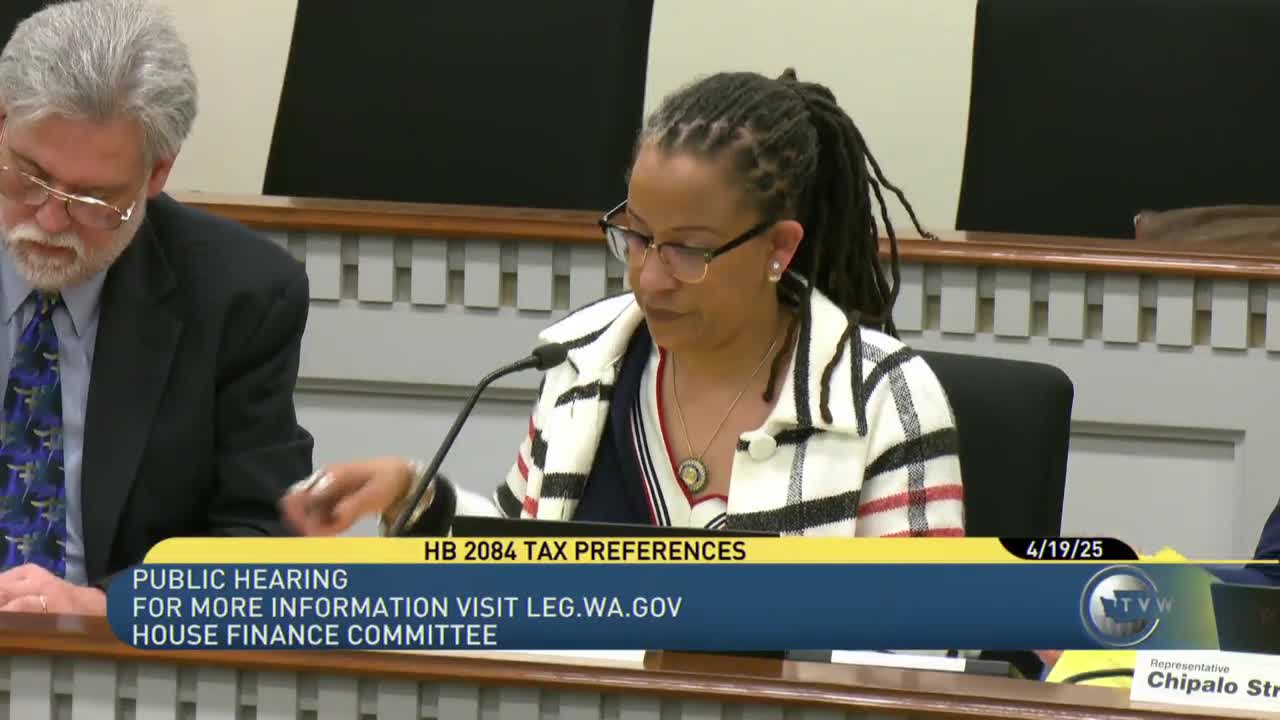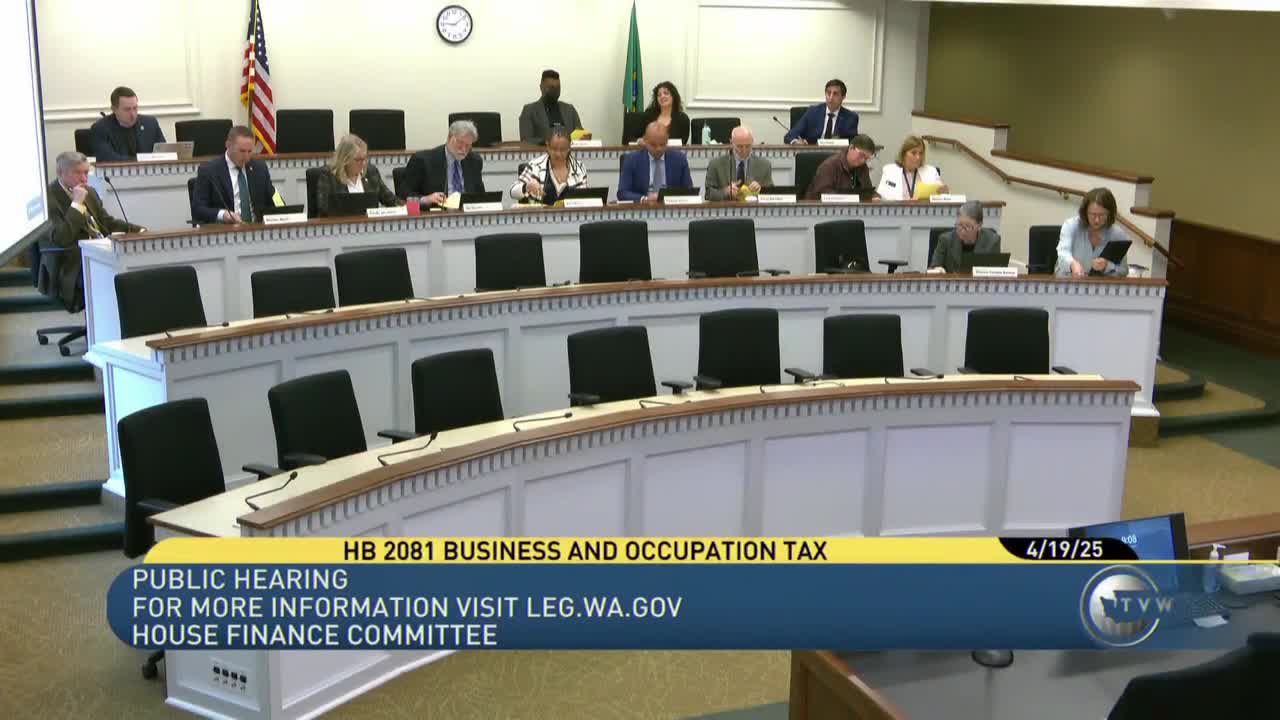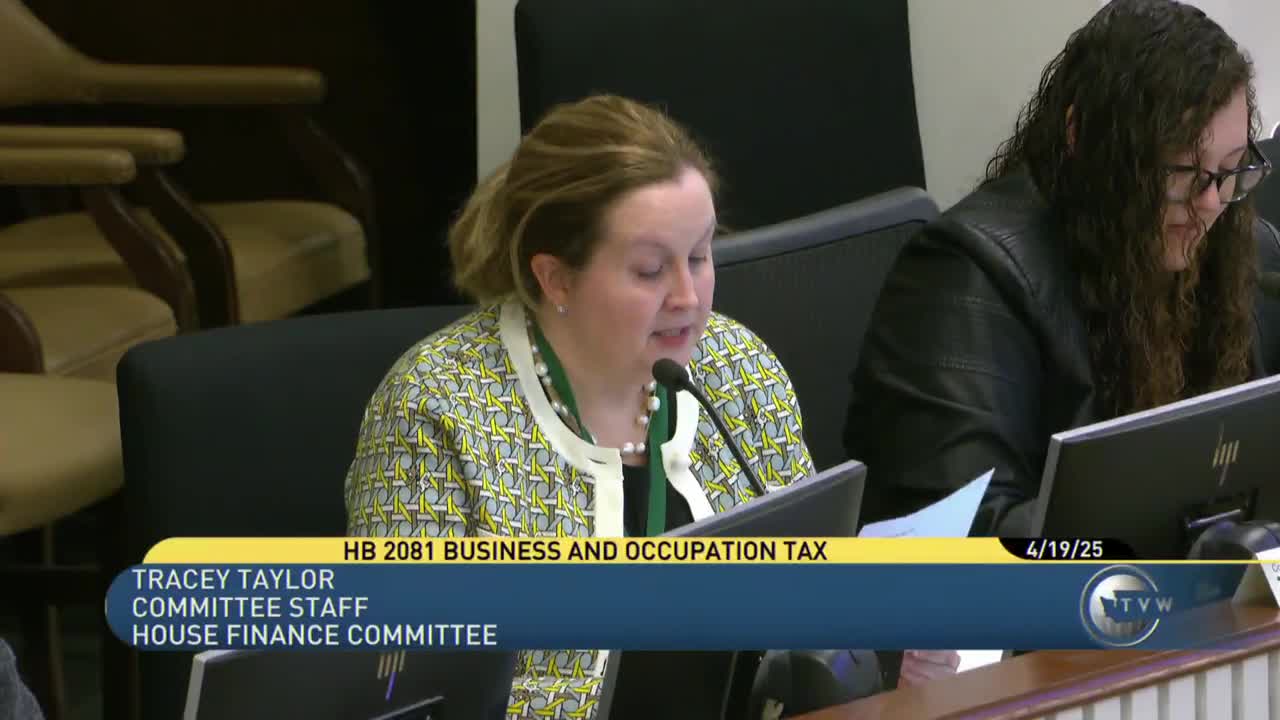Article not found
This article is no longer available. But don't worry—we've gathered other articles that discuss the same topic.

Committee reports K–12 property-tax and revenue growth bill after heated debate; several voter-protection amendments rejected

Committee reports HB 2,084 after amendments on precious metals, storage units and prescription-drug warehousing

Committee advances bill taxing ZEV credit transactions after amendment debate; 10-5 vote to report

